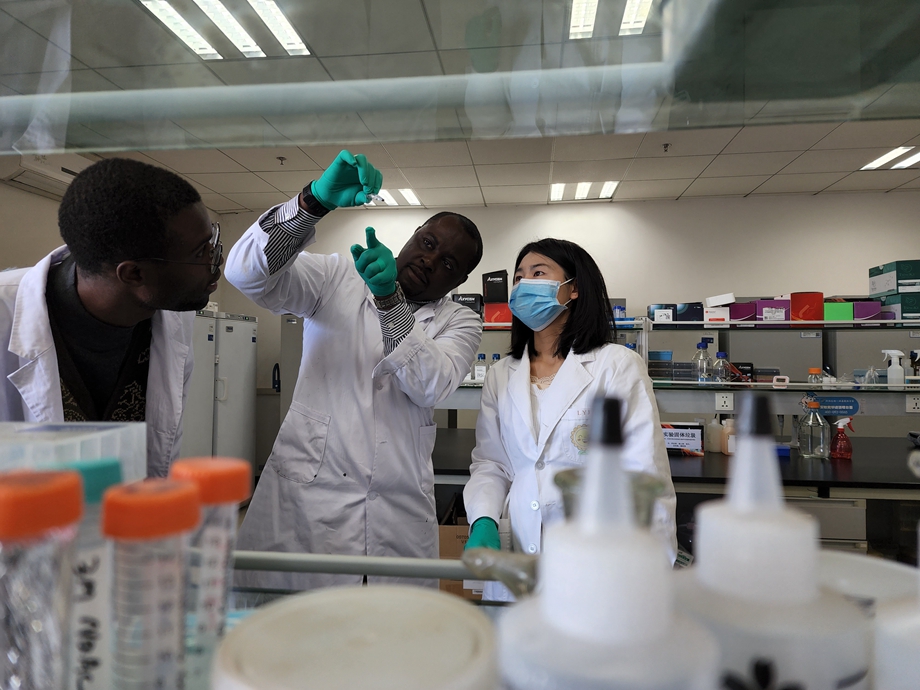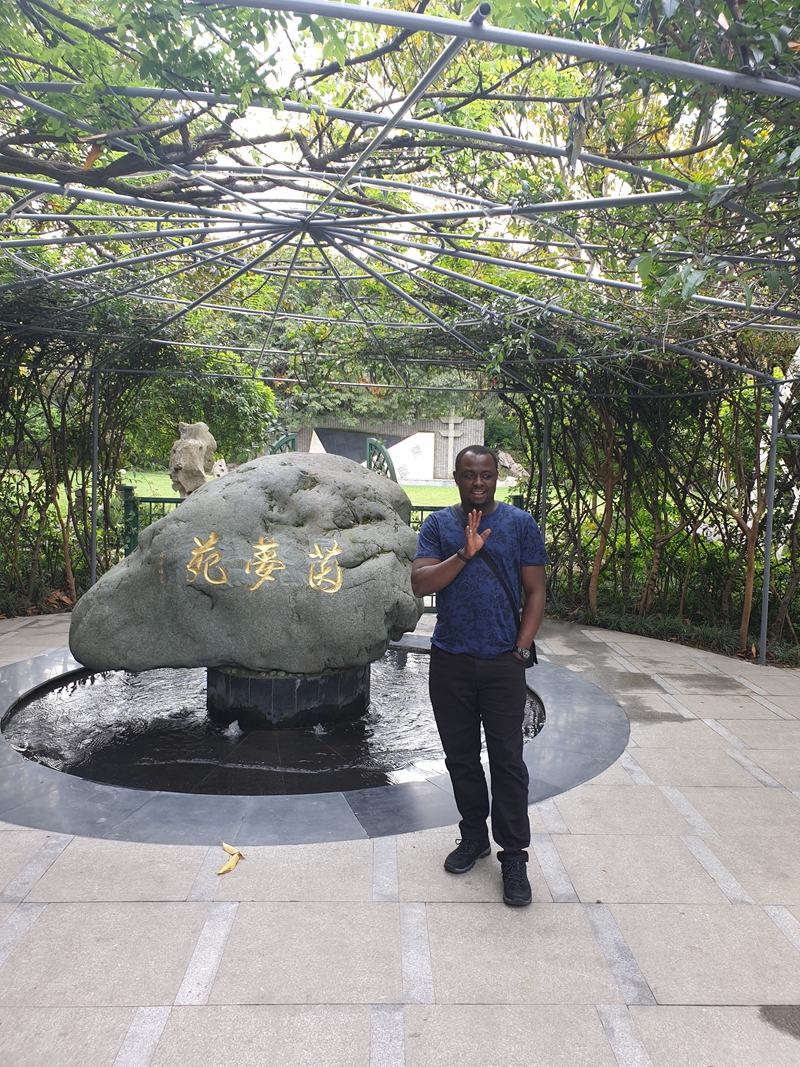Clout Magnet: Nigerian Charles says Yunnan biodiversity helpful for researchers
Editor’s note:
The 6th Yunnan Conference on International Exchange of Professionals (YCIEP) opened in Kunming on November 12, with the theme of "gathering joint wisdom, promoting common development". It aims to pool talents for faster growth.
In recent years, Yunnan has stepped up talents recruitment with effective intelligence-introduction programs. By introducing, training and employing talents in an all-round way, Yunnan has grown to be a new height for global talents.
From now on, we’ll interview seven international experts in different fields, telling their stories of scientific research, innovation and entrepreneurship in Yunnan.
Nigerian Charles: Yunnan biodiversity helpful for researchers
I’m from Nigeria, West Africa. Now I work as a zoologist at central Yunnan’s Kunming Institute of Zoology, Chinese Academy of Sciences (CAS). Yunnan has 1,836 vertebrate species, making up 54.8% of China’s total. Out of the 335 China priority protected wild animals, Yunnan has 243 species, accounting for 72.5% of China’s total. Quite a few are species endemic to Yunnan. Such data in animal biodiversity helped in my research and provided convenience for other researcher as well.

Charles (central) works as a zoologist at Kunming Institute of Zoology. Photo provided to Yunnan Daily
Also, the animal branch of the CAS Germplasm Bank of Wild Species has huge sample collections that are conducive to my research. In terms of financial support, I have received funding from the CAS Sino-African Joint Research Center, the National Natural Science Foundation of China, and the Chinese Academy of Sciences President’s International Fellowship Initiative. These supports assisted in my research. I have received huge support and help from my host, Prof. Ya-Ping Zhang, and the entire laboratory members at Kunming Institute of Zoology.
In 2018, Yunnan was the first province in China to pass local regulations on protecting biodiversity, in order to boost sustainable development, strike a balance between biodiversity conservation and development, and help build a shared future for all life on Earth. Last year, the UN Biodiversity Conference COP15 (first phrase) was held in Kunming, and on this occasion Yunnan organized diverse workshops, symposiums, and conferences on biodiversity. This COP15 conference, which was set to reach a new agreement to protect the environment, is now a good avenue to attracted international researchers. Therefore, I would hope for more of such activities in Yunnan in the future.

Charles has leisure in Kunming after work. Photo provided to Yunnan Daily
My research topics investigate the biodiversity and evolutionary history of wild and domestic animals in Africa to positively impact conservation efforts for the sustainable utilization of genetic resources by using genomic data for genetic diversity assessment and evolutionary history reconstruction. My research has provided comprehensive biodiversity data that serve as a baseline for initiating effective conservation policies in the face of unpredictable climatic conditions. By studying the helmeted guinea fowl and African suid genomes, for instance, I have provided insights into the adaptive evolution of wild and domestic animals in Africa.
The joint scientific research conducted by China and Africa has strongly promoted the development of the African continent thereby attracting more scientist. An open and inclusive CAS platform for joint scientific research and talent cultivation founded in 2013, the Sino-African Joint Research Center (SAJOREC) admits 30 African students yearly through the University of Chinese Academy of Sciences (UCAS)’s graduate programs. These programs include master’s programs, doctoral programs, visiting researcher and students programs. Since 2013, 282 African students have been awarded a fellowship to study at SAJOREC.

Charles has leisure in Kunming after work. Photo provided to Yunnan Daily
During my research here in the CAS Kunming Institute of Zoology, I helped establish research collaboration between the CAS institute and the National Park Service and University of Ibadan, Nigeria. This collaboration has generated some research articles. Also, one of the graduate students from University of Ibadan, Nigeria received his doctoral degree from UCAS supported by the Chinese government scholarship. I would suggest for more research cooperation between Yunnan and Nigeria. This will avail the opportunities for graduate-student training and research, and scientists in the two places can visit each other for further training and joint research.
Reporting by Wang Shixue








